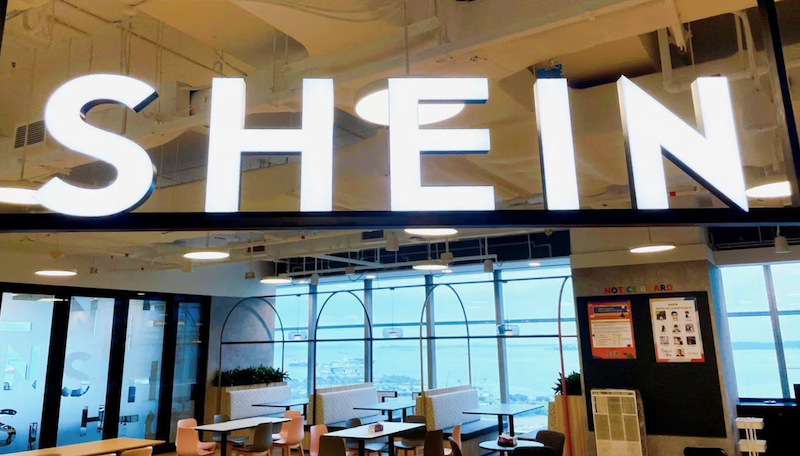Chinese fast fashion retailer Shein has come under the scrutiny of the cybersecurity regulator at home days after it sought Beijing’s approval for its initial public offering (IPO) in the US.
The development, reported by the Wall Street Journal, comes amid China’s tightening hold on data outflows from the country and the Xi Jinping government’s aggressive push to eliminate national security risks.
According to the WSJ report, the Cyberspace Administration of China (CAC) is looking at how Shein handles and shares information on its partners, suppliers and staff in China.
Also on AF: China’s Saw 5.2% Growth Last Year, But 2024 Likely to be Tougher
The internet regulator seeks to determine if the fashion company can protect such data from leaking overseas, WSJ said, citing people familiar with the matter.
Beijing will also probe the type of Chinese data that Shein will disclose to regulators in Washington as part the process for it to go public in the US, WSJ said.
Founded in mainland China in 2012, Shein was valued at more than $60 billion in a fundraising in May last year.
The fashion company, known for its $10 tops and $5 biker shorts, filed to go public in the United States in November, three years after shelving a listing plan in 2020.
Analysts have said that if the Shein IPO goes through, it will attract significant investor interest.
Multiple roadblocks to IPO
The cybersecurity review could potentially complicate Shein’s listing plans, which have run into political opposition in the US.
A bipartisan group of US lawmakers has called on the Securities and Exchange Commission (SEC) to block Shein’s IPO until it verifies it does not use forced labor
Shein has denied using forced labour or contractors in China’s Xinjiang — a region in which Beijing is accused of exploiting Muslim minority groups such as Uyghurs.
The fashion giant is, however, yet to receive the green light from the SEC for its listing.
Meanwhile, the review in China also highlights the limits of the Singapore-based company’s efforts to present itself as a global rather than a Chinese brand.
Even if it receives the approval from the SEC, Shein’s listing plans will tank without a go-ahead from the China Securities Regulatory Commission (CSRC) — whose permission it sought in November as well.
China’s offshore listing pickle
The filing with the CSRC makes Shein subject to Beijing’s new listing rules for Chinese firms going public offshore.
Before the new listing rules were adopted, Didi Global ran afoul of Chinese authorities by pushing ahead with its $4.4 billion US IPO in 2021 before the CAC completed its review of the ride-sharing giant’s data practices.
Beijing eventually fined Didi $1.2 billion over data-security breaches, and forced the firm to delist from the New York Stock Exchange. The company’s shares were down 80% from their listing price at the time of the delisting.
The new CSRC rules say a host of Chinese authorities such as the National Development and Reform Commission, which supervises foreign holdings in local firms, the CAC and others may get involved in approving offshore IPO applications.
That is likely to lead to more uncertainty for Shein, as some agencies have divergent priorities, such as national security or data protection.
A company is subject to the Chinese listing rules, even if it is headquartered offshore, if 50% or more of its operating revenue, profit, total assets or net assets are generated in mainland China.
The rules also apply if a company meets one of the following two criteria: the main parts of its business activities are conducted in the country or; senior managers are mostly Chinese citizens or domiciled on the mainland.
Shein does not own or operate any manufacturing facilities, and instead relies for its supply chain on around 5,400 third-party contract manufacturers, mainly in China, subjecting it to the CSRC listing rules.
The rules are applied on “a substance over form” basis, giving the CSRC discretion on when and how to implement them.
- Reuters, with additional editing by Vishakha Saxena
Also read:
China Drafts Contingency Plan for Data Security Incidents
China Offshore Listings Backlog Blamed on New Scrutiny Rules
China’s Offshore Listing Rules Spur Fear on Approval Process
China’s Anti-Espionage Law Adds to Foreign Business Concerns
China Plans New Checks For Auditors, Accounting Firms
China Plans Rules to Regulate Data Flows From Smart Cars
Capvision Vows to Defend China’s Security After ‘Rectification’
China Cybersecurity Rules Seen as Big Risk For Finance Firms
China Orders Check on Auditors to Ensure Data Secrecy – FT
Didi’s US Delisting Plan May Have Lost Hedge Funds $57m
























